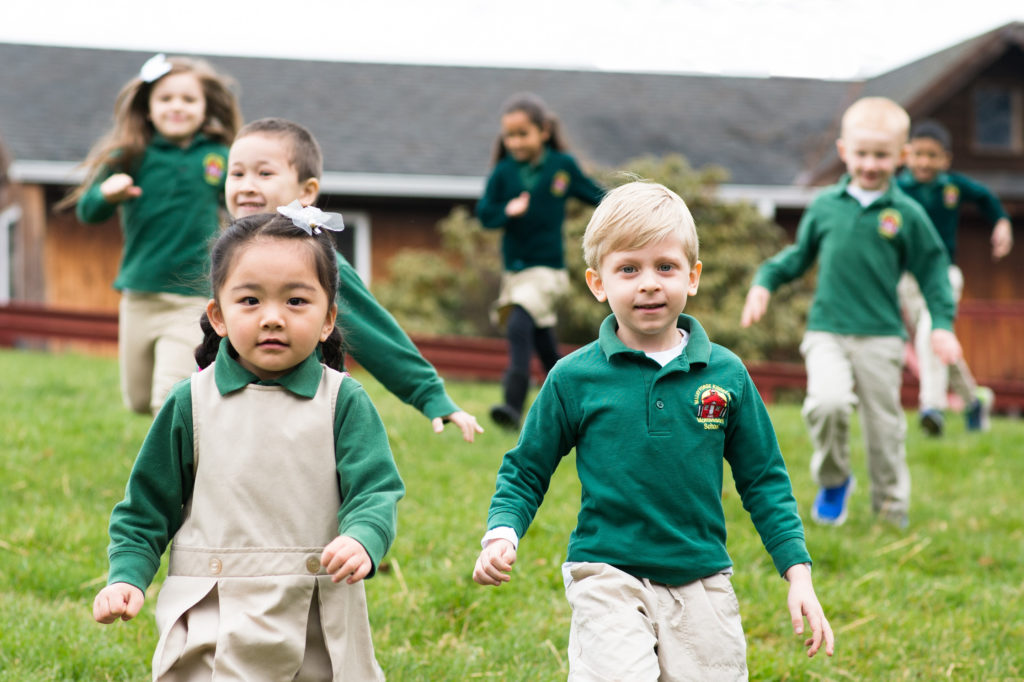
One of the things about Montessori that our founder and Head of School, Susan Kelly, was initially attracted by was the concept of Grace and Courtesy and basic respect. Respect flows through the Montessori environment from adult to adult, adult to child, and child to child. If we learn to treat others with respect and treat them as we would like to be treated, we are laying the groundwork for a peaceful community and hopefully a peaceful world. When observing a Montessori room the harmony and peace within is readily evident because it is modeled and it is lived.
Inner Peace & Peace with Others
Peace education is a major component of the Montessori classroom. Children learn to cultivate peace in their own lives, with others and with their communities. There are two types of peace that are the central focus of Montessori—inner peace and peace with others. Before children can start getting along with others, they need to understand their own emotions for cultivating inner peace. From an early age, we teach children to collaborate and accept each other. We show them that humans are fundamentally the same and we celebrate what makes each person unique.
There are three things that distinguish humans from other creatures:
- Our hands – the way we use them to work
- Our heart – the way we love others, even people we’ve never met before
- Our mind – the way we can imagine a better or worse future and have the ability to travel through space and time in our minds
Our hands, heart and mind should be used to do the work of peace in our lives and communities. We help the children in our classrooms develop this peace.
For younger children, we spend time working on manners and being kind to one another. We help them understand how to identify and communicate what they are feeling such as “I am angry”. As children get older, they are able to make peace in a more collaborative way. We encourage them to be empowered to use their skills to solve problems and resolve conflicts with others. Children can help other children with this process. Children have a very strong sensitivity for fairness and altruism. And, within the social setting of a Montessori classroom children exercise influencing their community for the better every day.
Teaching a Global Perspective
Montessori classrooms help foster peace by teaching children a global perspective and allowing them to use their imaginations to explore their interests and passions. For example, a student may want to help teach other students something that is of interest to them or be involved in a local community project. Prioritizing imagination in education and embracing different cultures can contribute to solving common problems and conflicts in a more peaceful manner. Children learn how to work as a community, help one another, and talk to each other when there is conflict or differences. Differences are resolved peacefully and respectfully. The children know their power to resolve differences and to be the change they wish to see.
We want children to have a wide view of the world and appreciate the diversity of others. Through peace education, we help provide them with the tools they need to navigate the world peacefully.